So, we lost Val Kilmer. But, he'll always be around because his movies will be around, and in some cases they'll be evergreen because his performance in them made them such.
Like Tombstone, one of the "Wyatt Earp" movies that came out around the first half of the 1990's (studios have projects in stasis and when they hear another studio might make a similar movie, they dust off their old script and try to beat the rival to the box-office). Tombstone was first out of the gate and did very well, despite a troubled production—screenwriter Kevin Jarre was directing, but his pace wasn't considered practical and so he was replaced with the very quick (but sometimes at a cost) George P. Cosmatos.
Even if the product looked a little "jinky" at times—sometimes people aren't looking at the folks they're talking to, and it even happens in this scene—you had to admire the script (although it did adhere to the old "O.K. Corral" mythology) and Val Kilmer's eccentric performance as "Doc" Holliday.
It changes over the course of the movie, it starts being still and measured, but as the movie rolls on, a little more of Kilmer's wicked Marlon Brando-imitation—they worked together, unhappily, on The Island of Dr. Moreau—starts creeping in, and for some reason, it just works and works well. In fact, despite a great performance by Kurt Russell in the lead, Kilmer seemed to walk away with the movie.
He could be absolutely amazing, and it's sorry to see him go.
The Set-up: Wyatt (Kurt Russell), Virgil (Sam Elliott) and Morgan Earp (Bill Paxton) have settled down in Tombstone, Arizona where they set up stakes in a gambling salon, but Wyatt is informed by his friend "Doc" Holliday (Val Kilmer) that Tombstone is beset by the Cowboy gang led by "Curly Bill" Brocius (Powers Boothe) and including members of the Clanton family as well as Johnny Ringo (Michael Biehn). Their paths were bound to cross.
Action.
Doc chuckles. Suddenly Curly Bill looms over the faro table with Ringo and a drunken Ike Clanton.
Doc shrugs.
Words by Kevin Jarre
Tombstone is available on DVD, Blu-Ray and 4K/UHD from Sony Pictures Home Entertainment
In essence, "Apella the Jew believes not me" is a rhetorical device that asserts a statement's lack of credibility by suggesting even the most gullible person would not believe it."
* A.I.'s good for something: "The phrase "Apella the Jew believes not me" is a Latin saying, "credat Judaeus Apella, non ego," that translates to "Let Apella the Jew believe it, but not I." It's used to express skepticism or to dismiss something as absurd or unbelievable, according to Wiktionary. The
phrase suggests that even someone considered easily believable, like
"Apella the Jew," wouldn't believe the claim, implying it's ridiculous.
The expression, first used by Horace in his Satires, has become a common way to express disbelief, according to Jewish Encyclopedia. It's also seen in the movie Tombstone, where it's used by Doc Holiday in a Latin scene, according to a Reddit thread.
The expression, first used by Horace in his Satires, has become a common way to express disbelief, according to Jewish Encyclopedia. It's also seen in the movie Tombstone, where it's used by Doc Holiday in a Latin scene, according to a Reddit thread.
In essence, "Apella the Jew believes not me" is a rhetorical device that asserts a statement's lack of credibility by suggesting even the most gullible person would not believe it."

1_WyattEarphuh.jpg)







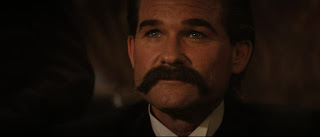









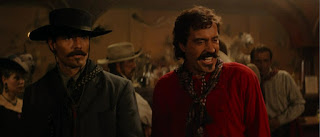






























































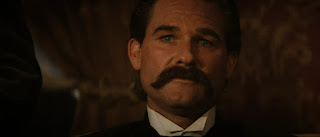




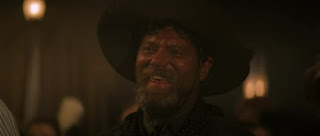










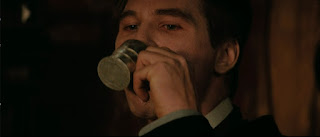





























No comments:
Post a Comment